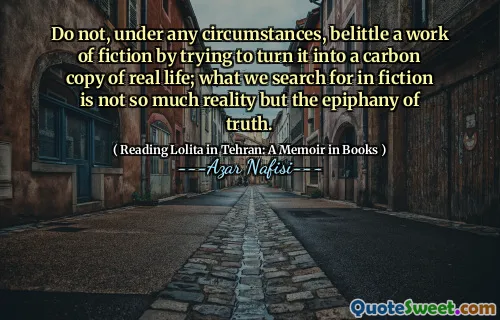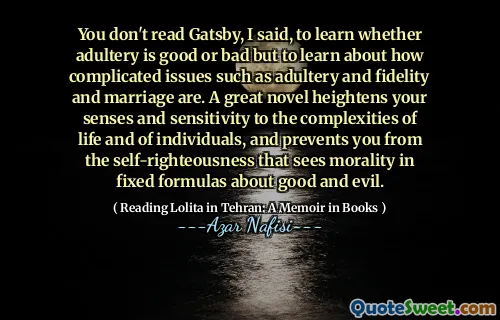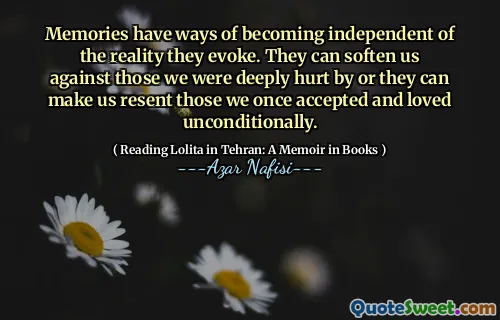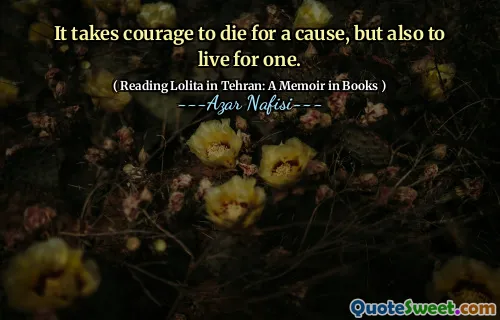
It wasn't courage that motivated this casual, impersonal manner of treating so much pain; it was a special brand of cowardice, a destructive defense mechanism, forcing others to listen to the most horrendous experiences and yet denying them the moment of empathy: don't feel sorry for me; nothing is too big for me to handle. This is nothing, nothing really.
📖 Azar Nafisi
In "Reading Lolita in Tehran," Azar Nafisi reflects on the way some individuals address their trauma with an apparent detachment. She argues that this behavior stems not from bravery, but from a unique form of cowardice. Instead of authentically expressing their pain, they present their experiences in a casual manner, which pushes others to engage with their hardships without inviting any empathy or understanding.
Nafisi suggests that this mechanism serves as a wall against vulnerability, as individuals proclaim their ability to endure, declaring that their suffering is manageable. By doing so, they deny others the opportunity to empathize, creating a disconnect that can be both isolating and damaging. This commentary highlights a critical aspect of human interaction regarding the expression of emotions and the longing for connection amid struggles.











